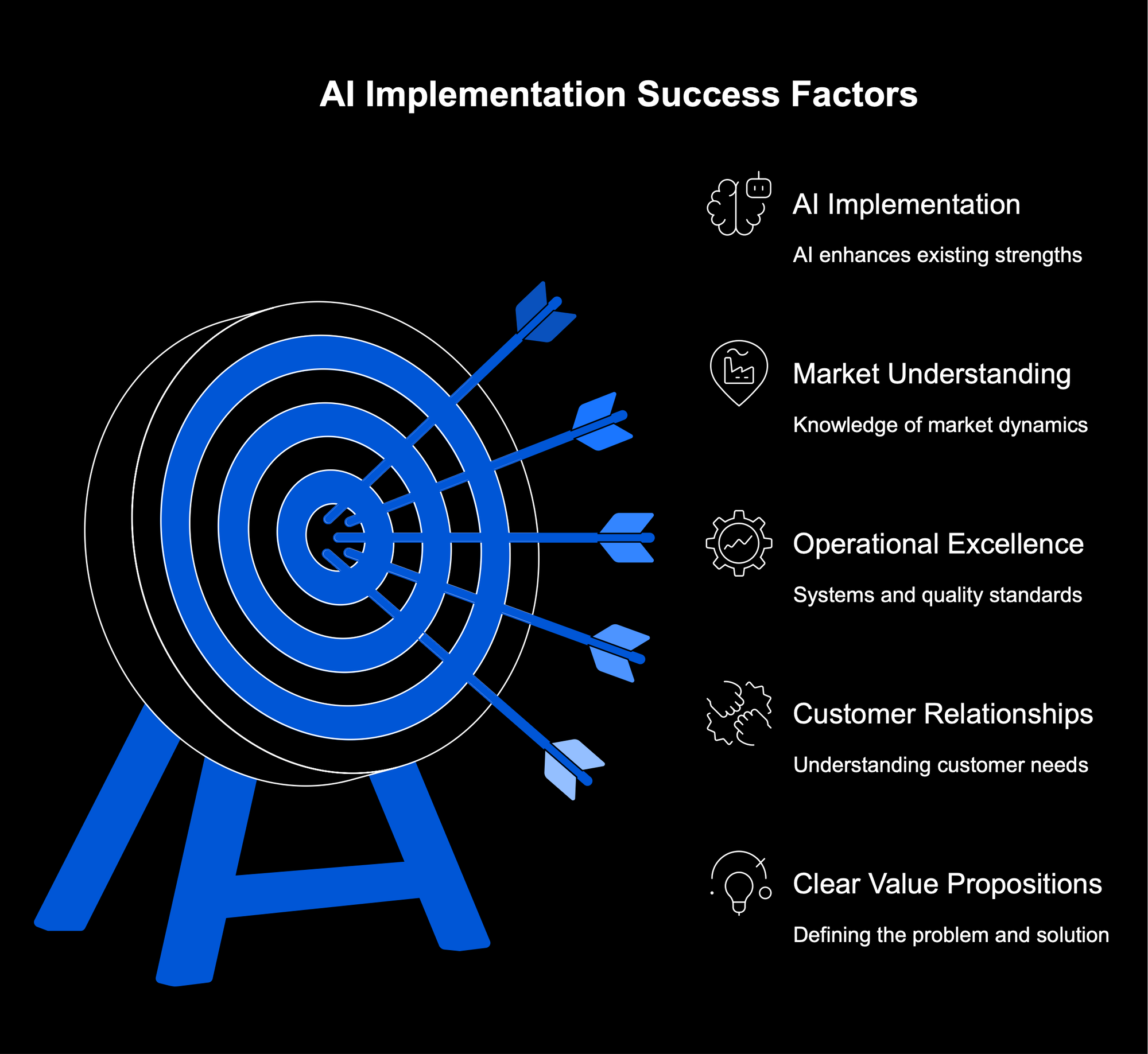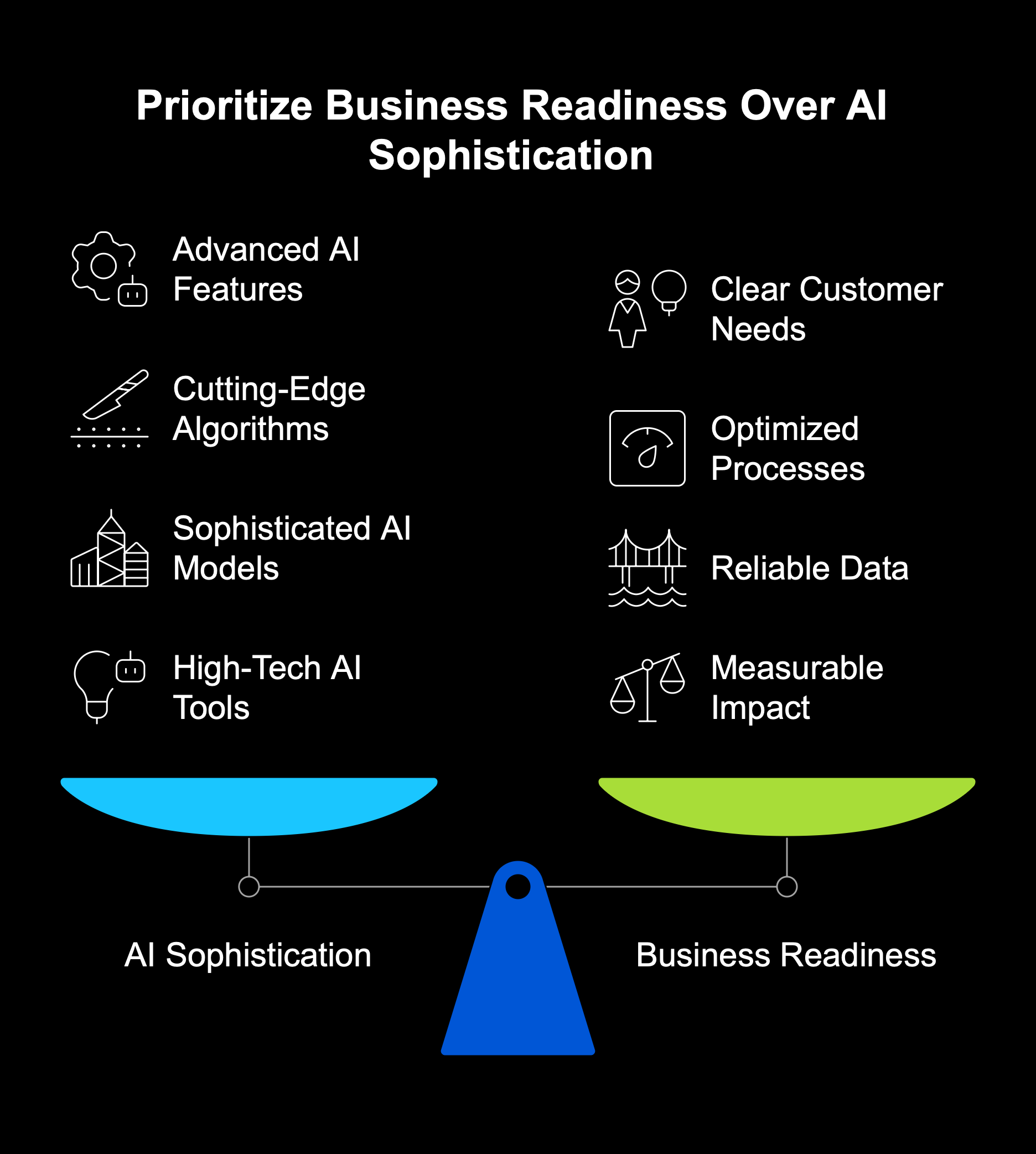The $3 Million AI Mirage: Why Your Business Foundation Still Matters More Than Your Algorithm
The AI literacy gap in leadership teams is creating expensive blind spots that could be avoided with basic technical awareness. The foundation for AI success isn't in the technology—it's in the understanding.

"No code. No team. 48 hours later: $3 million in subscriptions."
I read this headline last week and felt that familiar knot in my stomach—the same one I get when someone tries to sell me a "revolutionary" cryptocurrency or promises I can "lose 30 pounds in 30 days without changing my diet."
The story originates from Qconcursos in Brazil, which reportedly launched a premium subscription service utilizing AI platforms and generated massive revenue almost overnight. Impressive, right? The kind of thing that makes every entrepreneur wonder if they're missing out on the AI gold rush.
But here's the part that got buried in the breathless coverage: Qconcursos already had 6.2 million unique monthly visitors. They weren't starting from zero—they were leveraging an existing customer base to test a premium offering.
That's not "AI magic creating a business from thin air." That's a smart business strategy executed with modern tools.
The Hype Fatigue Is Real
Look, I get it. As someone who grew up watching Star Trek: The Next Generation, I'm genuinely excited about living in the future. The technological acceleration we're witnessing is remarkable, and AI is enabling capabilities that seemed impossible just a few years ago.
But I'm also exhausted by the relentless stream of "AI will make you rich overnight" content flooding every platform. Having spent two decades in the trenches of business development and technology implementation, I've seen enough companies rise and fall to know that sustainable success requires more than just riding the latest wave.
I've watched successful companies crumble because they lost sight of their fundamentals while chasing shiny new technologies. I've seen products launch too early to markets that weren't ready, burning through resources and goodwill in the process. And I've observed countless companies pretend to be industry leaders while having no actual product, no clear value proposition, and no understanding of their customers' real needs.
The "48-hour millionaire" narrative isn't just misleading—it's dangerous. It encourages entrepreneurs to skip the unglamorous work of building solid foundations in favor of chasing viral success stories.
What the Qconcursos Story Teaches Us
Let's dissect what happened in Brazil. Qconcursos didn't stumble upon AI tools and magically create a business. They:
- Built a substantial audience over time (6.2 million monthly visitors doesn't happen overnight)
- Understood their customers' needs well enough to identify premium opportunities
- Had established trust and credibility in their market
- Used AI to accelerate execution, not replace strategy
The CEO was clear about this: "We launched a new product line, for our current customers, a premium plan with a whole new UI." This wasn't about creating something from nothing—it was about serving existing customers better.
That's the real lesson here. AI didn't create their business; it amplified their existing capabilities.
The Foundation Still Matters
Every successful AI implementation I've witnessed in my consulting work follows a similar pattern. The companies that get meaningful results from AI already have:
Clear Value Propositions: They know exactly what problem they're solving and for whom. AI helps them solve it better, faster, or more efficiently—but the core value was already there.
Established Customer Relationships: They understand their customers' workflows, pain points, and decision-making processes. AI helps them serve these customers more effectively, not find new ones from scratch.
Operational Excellence: They have systems, processes, and quality standards in place. AI enhances these operations rather than replacing the need for them.
Market Understanding: They know their competitive landscape, pricing dynamics, and growth constraints. AI helps them navigate these realities more intelligently.

Are the companies struggling with AI? They're trying to use it as a substitute for these fundamentals rather than an amplifier of them.
The Human Element That Gets Lost
Here's what concerns me about the AI hype cycle: it's making us forget about the human elements that drive business success.
While everyone's discussing algorithms and automation, the most critical questions remain unchanged:
- What unique value do we create for our customers?
- How do we build trust and credibility in our market?
- What role do humans play in delivering that value?
- How do we maintain quality and consistency at scale?
The CEO to cleaning person hierarchy still matters. The interpersonal relationships, creative problem-solving, and contextual judgment that humans bring to business operations haven't become obsolete—they've become more valuable as differentiators.
A More Balanced Approach
This doesn't mean avoiding AI or dismissing its potential. It means approaching it with the same rigor you'd apply to any significant business investment.
Before implementing AI in your business, ask yourself:
- Do we have a clear understanding of our customers' actual needs?
- Are our current processes documented and optimized?
- Do we have reliable data to train and evaluate AI systems?
- Can we measure the impact of AI on our key business metrics?
If you can't answer these questions confidently, no amount of AI sophistication will save you.

The Real Innovation Opportunity
The companies that will win in the AI era aren't the ones chasing viral success stories. They're the ones using AI to strengthen their existing advantages while maintaining focus on fundamental business principles.
They're asking better questions:
- How can AI help us serve our current customers more effectively?
- What operational bottlenecks can AI help us resolve?
- How can we use AI to gather better insights from our existing data?
- What new capabilities can AI provide that align with our strategic goals?
What's left to say
The next time you see a "48-hour AI success story," look beyond the headline. Ask what foundations were already in place. Consider what unsexy work happened before the AI tools entered the picture.
The future belongs to businesses that combine AI capabilities with strong fundamentals, not to those chasing the latest technological quick fix.
As for me? I'm continuing to help businesses navigate this transition thoughtfully, focusing on sustainable growth rather than viral moments. Because in the end, the most successful AI implementations aren't the ones that make headlines—they're the ones that quietly deliver consistent value to customers who trust you enough to pay for it.
Want to discuss how to build AI strategies that leverage your unique competitive advantages? Connect with me by subscribing to NeurallyIntense or on LinkedIn. I'm always open to conversations about turning strategic possibilities into business realities.
Stay Raw | Stay Real | Stay Intense.
